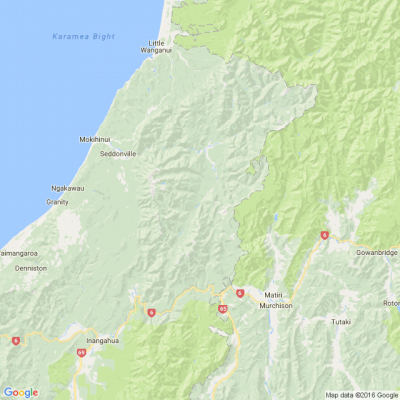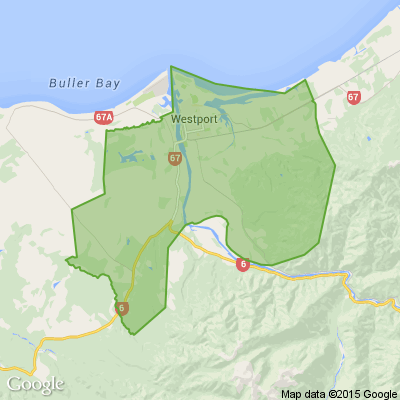Greymouth dump cleared but mayor fears disaster
By local democracy reporter Lois Williams,
The Environmental Protection Authority (EPA) has lifted the abatement notice it served on the owners of a private dump near Greymouth, saying it now meets national standards for a landfill.
But Grey mayor Tania Gibson says the Taylorville Resource Park – sited directly above the intake for Greymouth’s water supply - is still a disaster waiting to happen and should be closed.
“If there’s a major slip or an earthquake - it doesn’t bear thinking about what would happen. The enormity of this keeps being played down,” she said.
EPA investigators issued an abatement notice on the dump’s owners after they found it was leaching contaminated water from an unlined sediment pond.
The authority was asked by the West Coast Regional Council to step in as an independent investigator after the Grey District Council challenged the WCRC’s handling of resource consents for hazardous waste at the site.
The EPA’s investigations manager, Jackie Adams, said the extensive work needed to bring the landfill up to national standards has now been done.
“[Taylorville Resource Park] had to empty the existing pond and build a new, lined storage facility.
“This has now been completed and recent water samples taken from the area show that contaminated water is no longer being discharged from the site.”
The EPA’s investigation was now concluded and its intervention was at an end, Adams said.
“Ongoing regulation and monitoring of the site remain the responsibility of the regional council."
But Gibson said her council was a long way from being convinced the Taylorville site is safe.
Although the Grey District council had issued the original subdivision consents for the landfill, it had not been informed when the Regional Council had consented it for hazardous waste, the mayor said.
“We were not considered an affected party – unbelievable. We’ve got tonnes of toxic material - building materials, coal tar, paint, sitting directly above our public water intake that supplies 10,500 people, schools, hospitals."
The Grey District Council would continue paying for additional independent tests of its water which came from a bore at the Taylorville site above the Grey River, Gibson said.
So far tests had not found unsafe levels of any potentially harmful substances in the town’s water.
“But we will keep paying for tests – if anything happens we want to be able to say as a council that we did everything we could to prevent it.”
Taylorville Resource Park has been approached for comment.
■ LDR is local body journalism co-funded by RNZ and NZ On Air.
Poll: Should the government levy industries that contribute to financial hardship?
As reported in the Post, there’s a $30 million funding gap in financial mentoring. This has led to services closing and mentors stepping in unpaid just to keep helping people in need 🪙💰🪙
One proposed solution? Small levies on industries that profit from financial hardship — like banks, casinos, and similar companies.
So we want to hear what you think:
Should the government ask these industries to contribute?

-
59.8% Yes, supporting people is important!
-
25.8% No, individuals should take responsibility
-
14.4% ... It is complicated
A Neighbourly Riddle! Don’t Overthink It… Or Do?😜
Do you think you know the answer? Simply 'Like' this post if you know the answer and the big reveal will be posted in the comments at 2pm on the day!
If you multiply this number by any other number, the answer will always be the same. What number is this?

Have you got New Zealand's best shed? Show us and win!
Once again, Resene and NZ Gardener are on the hunt for New Zealand’s best shed! Send in the photos and the stories behind your man caves, she sheds, clever upcycled spaces, potty potting sheds and colourful chicken coops. The Resene Shed of the Year 2026 winner receives $1000 Resene ColorShop voucher, a $908 large Vegepod Starter Pack and a one-year subscription to NZ Gardener. To enter, tell us in writing (no more than 500 words) why your garden shed is New Zealand’s best, and send up to five high-quality photos by email to mailbox@nzgardener.co.nz. Entries close February 23, 2026.









 Loading…
Loading…





